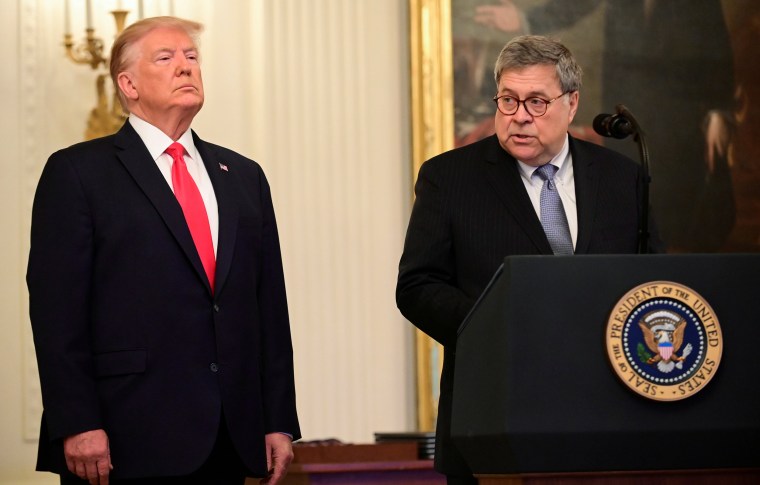It was one week ago today when Attorney General Bill Barr sat down with ABC News and said Donald Trump's public remarks about Justice Department matters make his job vastly more difficult.
"Public statements and tweets made about the department, about people in the department, our men and women here, about cases pending in the department and about judges before whom we have cases make it impossible for me to do my job and to assure the courts and the department that we're doing our work with integrity," the attorney general said.
There was no reason to take the comments at face value, and those who saw the interview as some kind of rebuke of the president seemed to miss the point Barr was apparently trying to convey. But putting aside the political subtext, it's worth pausing to appreciate how Trump has behaved in the wake of his attorney general's attention-getting interview.
For example, the day after Barr's comments, Trump publicly asserted "the absolute right" to intervene in federal criminal cases whenever he felt like it. On Tuesday, the president lashed out at a federal judge and Justice Department employees in the morning, before declaring himself "the chief law enforcement officer of the country" in the afternoon.
Yesterday, as the New York Times reported, Trump continued to push back Barr's appeals in rather aggressive ways.
With a series of retweets, Mr. Trump appeared to embrace the suggestion that Attorney General William P. Barr "clean shop" at the department. And the president promoted the idea of naming a special counsel to investigate what Tom Fitton, the head of the conservative nonprofit Judicial Watch, described as a "seditious conspiracy" at the department and the F.B.I.
When the Washington Post reported this week that Barr was considering resigning -- a threat that seems difficult to believe -- the article noted, "Trump, White House officials said, is not entirely receptive to calls to change his behavior, and he has told those around him that he is not going to stop tweeting about the Justice Department."
And to help drive home the point that the president "is not entirely receptive to calls to change his behavior," Trump appears to be doing more of what the attorney general ostensibly objects to.
Or put another way, the president continues to see Barr as someone who should follow orders, not give them, and Trump is happy to test the limits of the attorney general's obedience.
Barr was already in a weak position. But exactly one week after saying Trump's intervention makes it "impossible" for him to do his job, we're poised to find out how much lower the attorney general can go.
Update: While Roger Stone was in court this morning, preparing to receive his criminal sentence, Donald Trump published yet another tweet condemning the case. Perhaps the president is daring Barr to quit?

